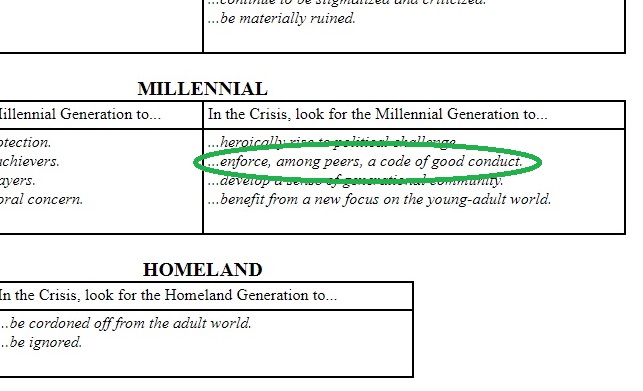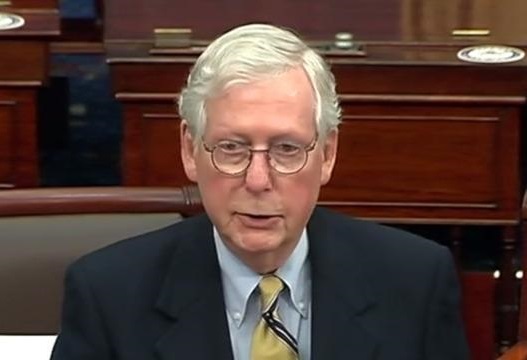Boomer Moralism and Today’s Dysfunctional Politics
I’ve read somewhere, more than once, that the Baby Boomers are the worst generation of political leaders in U.S. history. They are presiding over an era of extreme political partisanship and government paralysis. What I mean by “presiding” is that they are the majority of top political leaders, and that it is their generational peer personality that is primarily responsible for the combative, partisan nature of politics today. As I reviewed earlier, some Boomers acknowledge this, and that it’s even worse than you think. Basically, with Boomers in charge, nothing will ever get done, and government is doomed to be an ever-worsening shitshow.
At the heart of the problem is the moralistic character of the Boomer generation. This character was evident in their youth, which was famous for campus unrest and protests against the government policies of older generations. When Boomers aged into mid-life and entered politics themselves, starting in the 1980s, they brought their righteous indignation with them. Politics became more about confrontation over moral principles, and less about actually instituting policy.
This tracked with the overall evolution of the social order, which was steering away from the outer world and collective action, and toward the inner world and individual empowerment. It was what Strauss & Howe call the Unraveling Era, when the demand for social order reaches a nadir. But now that we are in the Crisis Era, and the demand for social order is rising, the confrontational, partisan mode of politics is proving to be severely detrimental. We’re in the middle of a global pandemic, for God’s sake!
Which brings me to this remarkable essay by Julius Krein, called “The Three Fusions.” I bring it up because the author pinpoints moralism and ideology-driven politics as the root of this era’s failures of government. I’ll briefly review the essay, without going into what he means by his three fusions, or the details of how he breaks down the ideologies of the Left and the Right.
In “The Three Fusions,” Julius Krein argues that moralism in politics has undermined the democratic nation-state, which is why neither political faction (Left or Right) has been successful at implementing its particular political agenda. The problem is neither faction really wants the collective to be empowered, since each sees virtue as residing in the individual, not the collective. Both the Left and the Right end up trying to advance their goals by putting responsibility on individual morality alone. Each side’s vision of an ideal society can only be achieved by having all individuals freely internalize its moral principles, since neither side will allow for the empowerment of collective will through state action. Hence the ridiculousness of virtue-signalling memes buzzing through our social media feeds, as though given enough time they will cause a majority of the populace to internalize the correct moral viewpoint. But that doesn’t happen; each side’s social media bubble is impervious to the memes of the other. Representative democracy can’t work with two factions in total opposition and government consequently gridlocked by partisanship. So we’re stuck without any means to empower the state to serve the national interest.
Krein is a Millennial, born in 1986. His generation is of the opposite archetype of the Boomers, so it’s no suprise that his instinct is to turn away from moral correctness as the legitimating principle of government. He clearly yearns for a more practical, functioning mode; one that acknowledges differences in belief about morality while still allowing for collective decision-making. I think many in his generation do, as their political activism shows.
But how to get past the dysfunctional Boomer paradigm? And to be fair, it’s not just the Boomer generation that bears a responsibility for excessive moralism. Younger generations are playing along, even Millennials – just scroll through Twitter to see what I mean. They are following the lead of their visionary elders, which might work, if only there were a more clearly dominant vision.
Eventually, as the generations age, moralism will fade away on its own accord. But by then the damage done may be irreparable. There’s certainly no resurrecting all the people who have died from Covid-19. And it might be too late to restore trust in democracy, or to revert the trend of ever-widening inequality. We’ll end up in a 21st century dystopia.
I honestly think that getting to a dominant vision is probably the only way to a resolution of this problem. It allows the Boomers to fulfill their archetypal role of visionary, and the younger generations their roles as well. It won’t matter that the dominant ideology has logical contradictions. Obviously, not everyone is going to like it. But it’s either that or twisting in the wind and enduring the pain of a broken system. Lord knows we’ve endured enough pain as it is.


